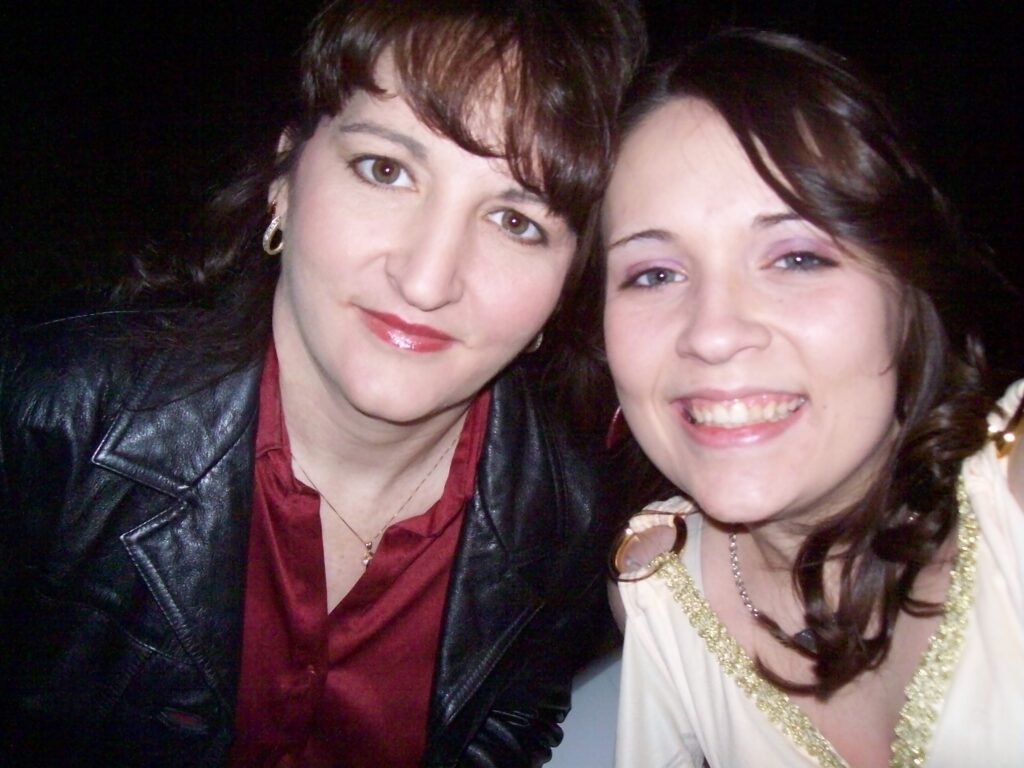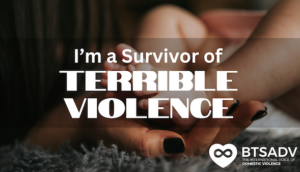I interviewed Tara Woodlee, the President and CEO of BTSADV, to gain insight about how we can best support mothers who have lost their child to domestic violence. In 2013, Tara lost her daughter, Ashleigh, and her unborn granddaughter, Patience Lynn, to domestic violence. In sharing her story with me, Tara provided some information about the things she has found helpful in coping with this loss. She also provided insight for those supporting a grieving mother.
What can a grieving mother do after her loss?
- Find a community of support
In coping with the loss, it can be helpful to find a community of support. You are not alone. Don’t feel like you have to do it alone. Form connections with those who will be there to encourage you. Tara credits having strong systems of support with helping her through the early days of losing her child.
Connect with others who share a similar experience. Tara also found it helpful to look for other families on social media who had experienced the loss of a child. One of these days she was searching through social media when she stumbled upon the BTSADV page. She found BTSADV in its infancy, only months after it began. She began volunteering with the organization. Today she leads this organization and provides help to so many others.
- Tell your child’s story
When the time is right, you can tell your child’s story. Keep your child’s story alive. Your child’s story might be the turning point in another person’s life that changes their path. Your child’s story may be the key to freedom for someone else. It is a powerful story, and someone needs to hear it.
As a woman of faith, Tara mentioned the importance of her faith in helping her cope with losing a child. She felt inspiration from God to speak out and tell her story. She also felt inspired by Ashleigh to tell her story. Tara began doing speaking engagements to share her story around the same time she began volunteering with BTSADV. Ashleigh’s story is so powerful. It has been read by people all over the world. Tara recalls more than one of Ashleigh’s friends telling her that they had left their abuser, or were planning to leave, thanks to her sharing Ashleigh’s story.
- Cope in Healthy Ways
Be mindful of unhealthy coping mechanisms you may have. If pain causes you to turn to substances or alcohol, it is important to be aware of this. Do not use substances to drown out the pain. Identify healthy coping mechanisms. Do what feels good but do what is also healthy. Tara wore her daughter Ashleigh’s favorite color purple for a while. Wearing purple reminded her of her daughter and provided a healthy way for her to cope with the loss.
- Be in Tune with Yourself and listen to your body
Mothers spend so much time caring for the needs of others and hearing the needs of others. It is important for you to also attune to yourself to be aware of your needs. Listen to your body. If you are tired, rest. If you need to take a day off, give yourself the grace to do so. Grief can take a toll on your body, both mentally and physically. Even if you look OK on the outside, the grief can still be affecting your body. Remember, just because you can’t see the root of the pain doesn’t mean it’s not there. Psychological pain is pain, and it still hurts. Acknowledge the pain. Allow yourself to experience the feelings that come. Be patient with yourself because there will be hard days sometimes. You just have to keep getting up each morning and facing each new day.
- Heal at a pace that is comfortable for you
“Don’t listen to what other people tell you about your healing. Listen to your own heart. Grief is a cycle. It is ok to be in any of the stages in the grief cycle. Just don’t get stuck. You may even redo parts of the grief cycle. It is not linear. It’s ok to have the feelings.”
-Tara Woodlee.
Take your time and heal. Do not feel that you need to rush through the healing process. Your healing is not on a timeline. Healing is a personal experience, and it looks different for everyone experiencing it.
- You can keep items from your child’s life
You don’t have to get rid of your child’s items. You can keep the items and possessions that belonged to your child. You don’t have to give up those things. That is another way of keeping your child’s memory alive. Tara has many of Ashleigh’s items and some of them have been repurposed. One Mother’s Day Ashleigh’s sister had a paperweight made from the license plates that were on Ashleigh’s truck. What a creative way to preserve this memory of something she had owned. Tara also has ideas for how she might repurpose some of Ashleigh’s other items. Ashleigh’s remaining clothes might be passed down to Tara’s grandchildren or they may become a quilt.
- Bring joy to a day that may be painful
Tara’s birthday comes with some sadness since the man who took her daughter’s life has a birthday on the same day. This year Tara decided to bring joy to that day by taking her grandchildren to the zoo to celebrate. She took that day back and brought joy to a day that was somewhat painful. You have the power to bring your own form of joy to a day.
WHAT CAN SUPPORTERS OF A GRIEVING MOTHER DO?
- It’s OK to mention things that trigger memories of the child
Sometimes people are nervous to mention the child who has died. They may feel that they have to tiptoe around topics that might cause the mother to think about her child. People may avoid the child’s name in conversations, because they are afraid of triggering pain and grief. Tara mentioned a friend who was apologetic after mentioning the Harry Potter movie when she realized that Ashleigh really liked the books from that series. Tara wants people to know that mothers want to be reminded of those beautiful memories of their child. Talking about the child who has died is not a taboo topic.
- It’s ok to provide beautiful reminders of the child who was lost
Mothers want to preserve the beautiful memories of their child. Tara shared heartwarming memories of Ashleigh’s life. She told of a time she came to her daughter’s defense when a teacher rudely disagreed with a new hair color choice Ashleigh had made. Another time, a visit from a friendly squirrel at the zoo reminded Tara of Ashleigh’s love of squirrels as a young child. As a young child Ashleigh made friends with the neighborhood squirrels. She named them, talked to them, and fed them out of her hand. Ashleigh was a squirrel whisperer in a sense. I could hear the joy in Tara’s voice as she shared these memories. Mothers treasure the memories of those joyful moments shared with their child.
- Be patient with the healing mother and do not rush her healing
Two of the worst things you can say to a grieving mother are:
“Are you not over this yet?”
and
“You have other children.”
Never say these things to a grieving mother. No matter how long it has been, the pain still lives on in that mother’s heart. No matter how many other children she has, the mother still feels the loss of her child who has died. Losing a child is something that a mother will never completely get over. No one should be enforcing a time limit for the mother’s healing.
With Mother’s Day upon us, it is especially important for us to remember mothers who have lost a child to domestic violence. For many this holiday may be filled with joy and celebration. For mothers who have lost a child this day may serve as a reminder of their grief.
[Excerpt from a Poem for Grieving Mothers]
Sometimes, we feel we don’t know the right words to say,
But please know, Mother, that we want to be here to comfort you today.
Today, Mother, it is you we want to embrace.
We want to wipe the tears from your face.
Today we want to hold you up and help you stand.
Today, Mother, we want to hold your hand.
We want to encourage you and let you know that even though
Things will never quite be the same
You still remain…
A MOTHER .
Our love and support continue today,
Mother’s Day,
and every other day.










